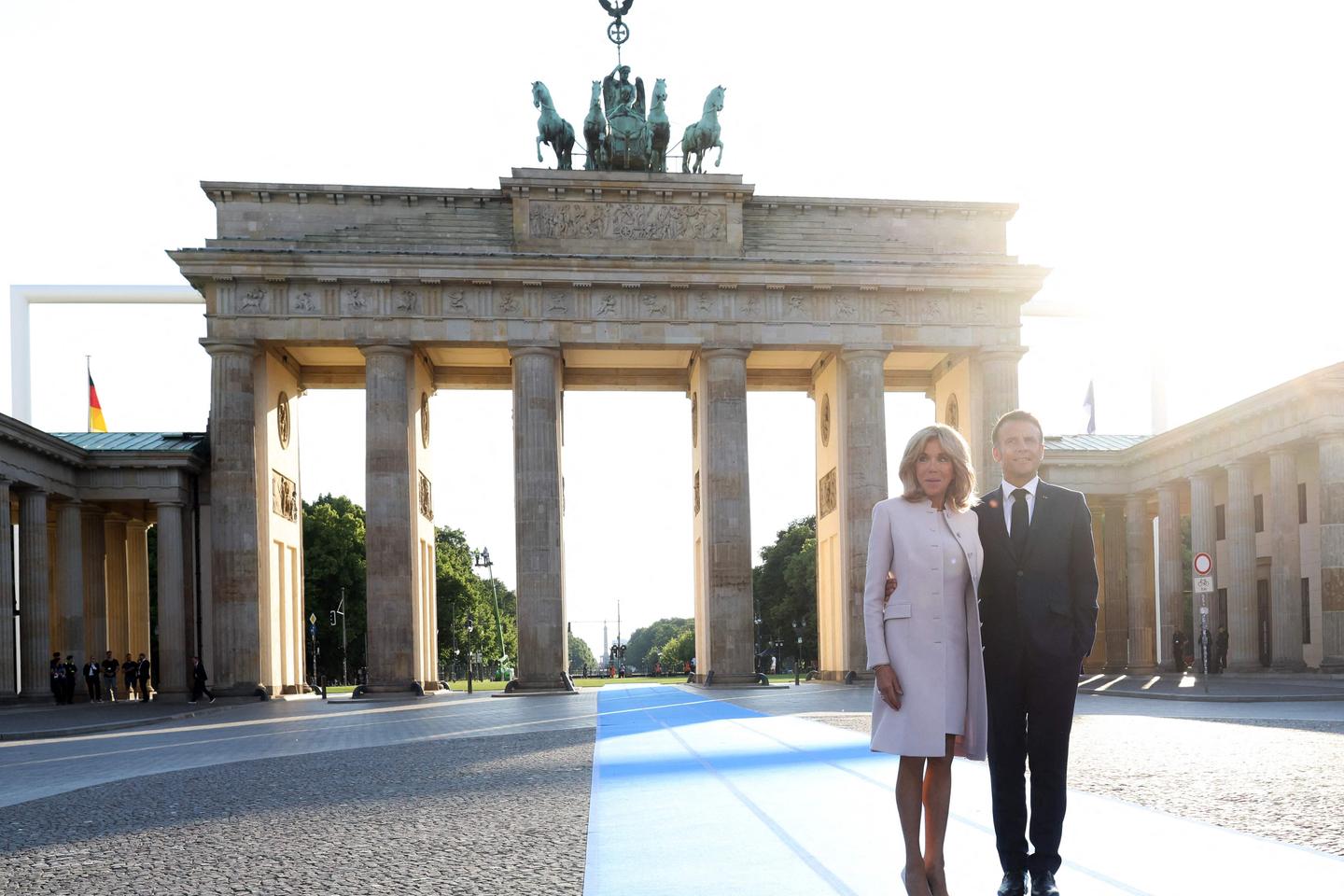


The secret hope of all state leaders is that historians will look at them less harshly than journalists. How will the Macron years be judged in 20 years' time? Will France's youngest president be remembered as the "French Gerhard Schröder" – the one before the Russian crisis? Or the "French Tony Blair" – the one before the Iraq war?
In 2017, Emmanuel Macron, former advisor to François Hollande, surely aspired to be this French version of a social-democratic reformer, 20 years after his elders. Authors of the "Third Way" manifesto in 1999, which then French prime minister Lionel Jospin had refused to sign, Blair and Schröder were in retrospect credited with some fine economic successes.
With changing times, Macron dropped the vocabulary from the French second-wave left for a more modern language of emancipation and fight against established rents. But the framework of transcendence remained: combining supply-side socialism with a policy of competitiveness – labor and pension reforms, lower taxes, and pro-business discourse acknowledging the reality of globalization. Over time, left-wing principles were abandoned.
The question of his legacy is probably a little premature, but let's assume that Macron's major achievements are behind us rather than ahead. Economically, the record is rather flattering. French and foreign business leaders are lauding his labor market reforms. Mass unemployment is no longer an issue in France. Apprenticeships have been restored to their former glory – albeit at great public expense. With equal growth, France now creates more jobs than in the past. Factories have stopped leaving the territory, even if they aren't returning yet. The country has been spared from recession, while Germany's economy is shrinking. And France's image has changed.
Outdated ideas
However, the shock therapy imagined by Macron has nothing in common with that inflicted by Chancellor Schröder on a Germany then described as "the sick man of Europe." The brutal Hartz reforms – four laws between 2003 and 2005 – cut unemployment benefit periods to one-third of their former duration, putting the long-term unemployed on welfare, and created the notorious "mini-jobs" paying a few hundred euros, which boosted employment figures while increasing job insecurity and inequality.
Although their philosophy is comparable, prioritizing returning to work over the quality of employment, the French reforms are a milder version of this, which is surely a good thing. The possibility for companies to seek exceptions from sectoral labor agreements, presented as a success factor in Germany, has in fact been abandoned after being mentioned on the French side. And while Chancellor Schröder sacrificed twenty million retirees by freezing their pensions in 2003, calling for wage moderation in companies, Macron chose to preserve his loyal electorate of retirees, indexing pensions, the minimum wage and social benefits.
You have 23.93% of this article left to read. The rest is for subscribers only.
